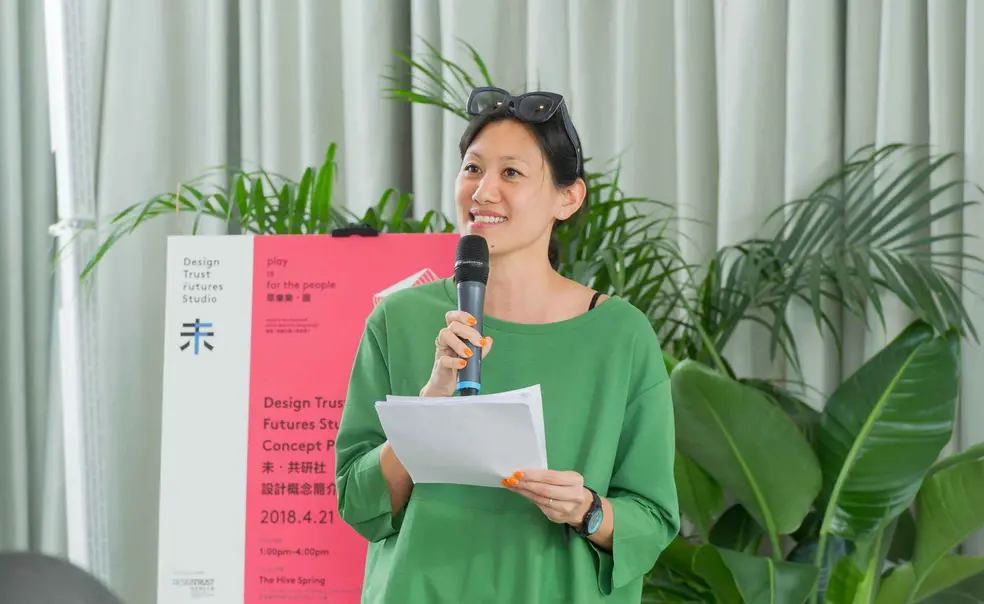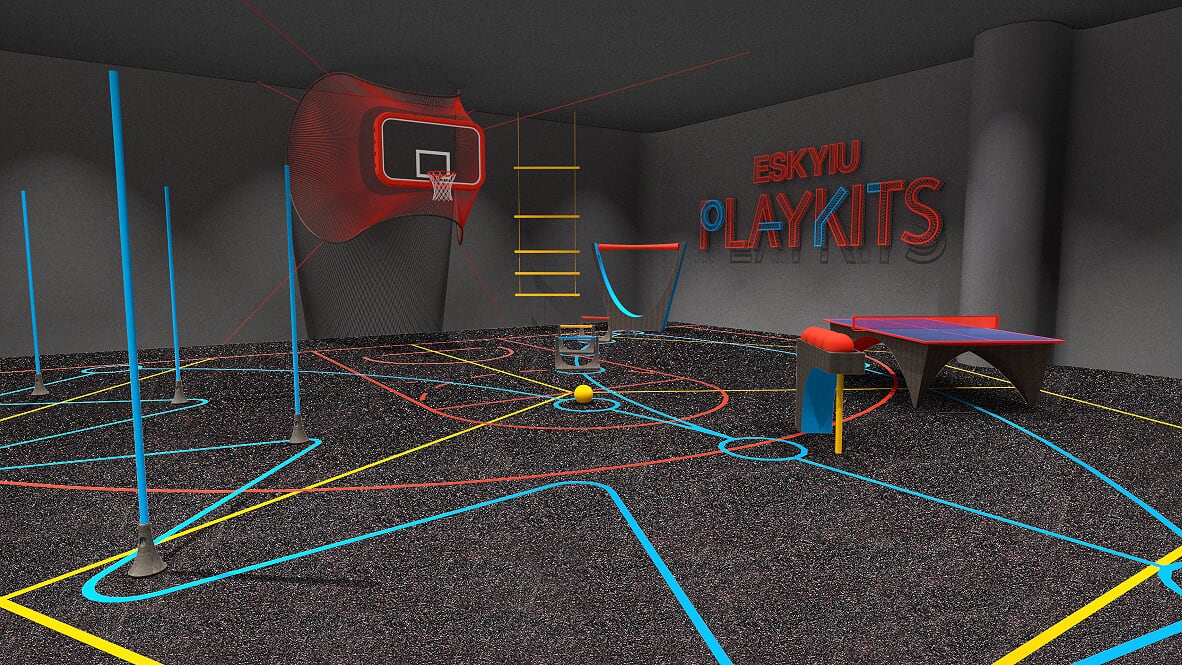Architect Marisa Yiu *01 Sees Her Craft as a Deeply Human Social Practice
Last November, inside a cavernous room on the ground floor of a large commercial building complex in Hong Kong, Marisa Yiu *01 and her husband Eric Schuldenfrei shot hoops, hopped over hurdles, and played a high-energy round of ping-pong.
This was Playkits, a retrospective celebration to mark the 10-year anniversary of their multidisciplinary architecture studio, ESKYIU. The duo had designed a highly transformable, colorful, and playful space that, over a period of two weeks, played host to a series of community-wide sports and experimental music events.
It was not your typical architectural exhibition, but then again, Yiu and Schuldenfrei are not your typical architects.
“Architecture is often seen as solid artifacts, the built environment,” said Yiu, a Hong Kong native. “But oftentimes, it’s really about the engagement of human relationships, how people relate to space, the psychological wellbeing. There’s just so much beyond.”
Yiu, who did her undergraduate studies at Columbia before pursuing a masters at Princeton, sees architecture as a social practice that is deeply rooted in the human condition.
“It’s always been like, what does that social engagement part [of architecture] mean?” she said.
Together with Schuldenfrei, who previously taught at Princeton for six years, Yiu works on a wide range of collaborative projects that center on themes of cultural education, social sustainability, community participation, and the use of public space.
Projects that Yiu and Schuldenfrei have worked on in recent years include a forest-like installation in a post-industrial district of Hong Kong, a book on today’s culture of the instant, and a model featured at the 2018 Venice Biennale examining interstitial spaces in tightly-packed Hong Kong.
What the projects all share is the playful way in which they challenge the public to rethink the built environment. Yiu approaches her projects as test beds for new ideas and opportunities to imagine how things might be done differently.
“It’s an ongoing question about how do we test these ideas and make transformation and change,” she said. “When will interventions become policy change? What will impact look like?”
Playkits, for example, was a chance to “challenge the notion of a retrospective exhibition” and to push back against pop-up culture, she said. As part of an effort to advocate for a more sustainable, circular economy, they laid surfaces and created objects using Nike Grind, a material fashioned out of recycled Nike shoes and manufacturing scraps. Then, at the end of the exhibition, the materials and artifacts were donated to a local school to build a legacy play and sport area.
“It’s really about making use of the assets we have, but also preserving,” said Yiu.
Yiu is active in the nonprofit world, too. She is the co-founder and executive director of Design Trust, a charity that supports a range of design initiatives in Hong Kong and China’s Greater Bay Area. The organization provides grants for different creative projects and is also home to the Design Trust Futures Studio, a long-term mentor-mentee program that explores the design of public spaces in Hong Kong and abroad. The 2018 iteration, which is still ongoing, has four teams designing and creating four micro-parks in different locations around Hong Kong.
Yiu sees Design Trust as a “neutral third space” that offers exciting opportunities for open-ended reactions to the city and the urban condition. She loves bringing people together from all sectors of society, seeing interactions unfold and new ideas being formed.
“It’s the unexpected moments, seeing people in their own little worlds, stumbling on things,” said Yiu. “We can always be inspired, we can always learn.”













No responses yet